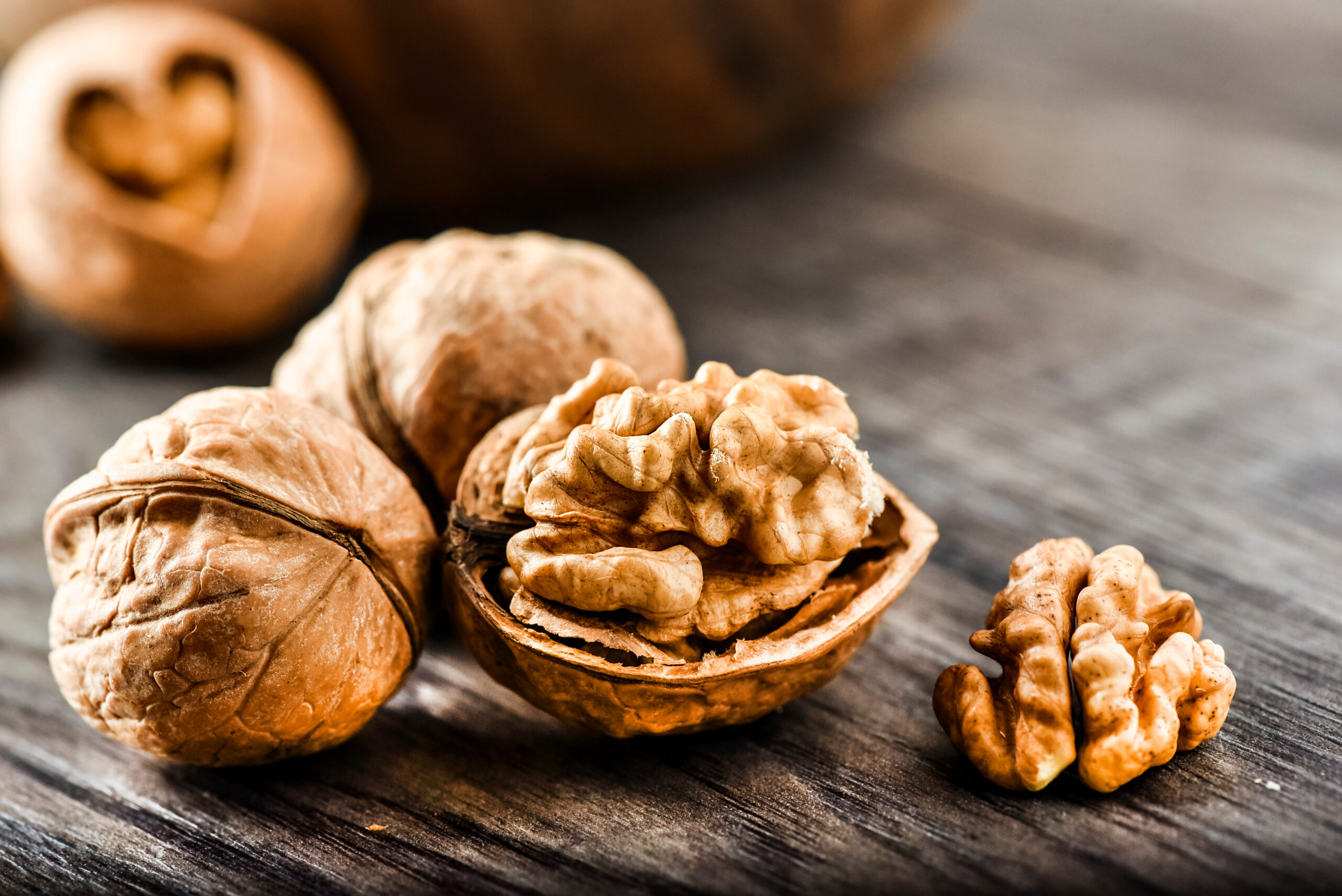Table of Contents

Walnuts may offer a surprising defense against colon cancer, as recent research reveals their unique compounds can reduce inflammatory markers and alter gut bacteria in ways that inhibit tumor development.
At a Glance
- Studies show increased nut consumption is associated with improved survival rates in stage 3 colon cancer patients
- Walnuts contain ellagitannins that gut bacteria convert into anti-inflammatory compounds called urolithins
- Research found mice consuming 7-10.5% of calories from walnuts developed fewer colon cancers, with males showing 2.3 times fewer tumors
- Walnuts may act as prebiotics, promoting beneficial gut bacteria that help protect against colon tumors
- Just 56 grams (about 1/2 cup) of walnuts daily may provide protective benefits
How Walnuts May Help Prevent Colon Cancer
The link between diet and cancer prevention continues to strengthen as researchers uncover the protective properties of specific foods. Walnuts have emerged as particularly promising for colon health, thanks to their unique nutritional profile. Rich in omega-3 fatty acids, fiber, antioxidants, and compounds called ellagitannins, walnuts appear to create an environment in the colon that's less hospitable to cancer development. When these ellagitannins reach the gut, bacteria transform them into powerful anti-inflammatory compounds known as urolithins, which may directly impact the cells lining the colon.
Research from UConn Health and The Jackson Laboratory found striking evidence in animal studies. Mice that consumed walnuts as part of their diet developed significantly fewer colon cancers than those fed standard diets. The walnut-eating group had 2.3 times fewer tumors, with male mice showing particularly strong benefits. Scientists believe this is partly because walnuts increase the diversity of beneficial gut bacteria, especially in males, which could contribute to their cancer-fighting properties.
The Science Behind Walnut's Anti-Cancer Properties
What makes walnuts particularly effective against colon cancer appears to be their ability to target multiple cancer-fighting pathways simultaneously. One key mechanism involves angiogenesis—the process by which tumors develop new blood vessels to fuel their growth. A study published in the journal Cancer Prevention Research demonstrated that walnuts significantly decreased angiogenesis in colorectal tumors, reducing tumor weight by 33% compared to control groups. This anti-angiogenic effect wasn't as pronounced in groups receiving flaxseed oil, suggesting walnuts contain a unique combination of compounds that work together.
The formation of urolithins from walnut compounds appears particularly important. Dr. Daniel Rosenberg, who led a human pilot study involving 39 participants consuming 56 grams of walnuts daily for three weeks, found elevated levels of urolithin A in many participants. This compound positively affected immune cells in colon polyps and reduced inflammatory markers both in the colon tissue and systemically through the bloodstream, indicating that walnut benefits extend beyond just gut health.
Clinical Evidence for Walnut Benefits
The cancer-fighting potential of nuts is further supported by clinical studies of cancer patients. Research by Fadelu and colleagues found that increased nut consumption was linked to improved disease-free and overall survival in stage 3 colon cancer patients. Those consuming nuts two or more times per week showed significantly better outcomes than those who rarely ate nuts. Interestingly, tree nuts like walnuts showed stronger protective effects than peanuts, which are technically legumes and have a different nutritional profile.
One significant finding from the research is that individual responses to walnut consumption vary considerably. Dr. Rosenberg noted, "We believe that many of the effects we have observed with respect to inflammation are directly related to a patient's ability to form urolithins. However, this ability is widely variable in human subjects. Some people can do this very well, whereas others lack this capacity." This suggests that genetic factors and existing gut microbiome composition may influence how much an individual benefits from adding walnuts to their diet.
Incorporating Walnuts Into Your Diet
For those interested in potential colon health benefits, researchers suggest consuming about 56 grams of walnuts daily—approximately half a cup or a large handful. This amount was used in the clinical trials that showed promising results. Walnuts can easily be incorporated into daily meals by sprinkling them on salads, adding them to morning oatmeal, blending them into smoothies, or simply enjoying them as a snack. Their versatility makes them an accessible addition to most diets.
While walnuts show promise for colon health, they're most effective as part of an overall healthy diet rich in plant foods and low in processed items. The omega-3 fatty acids and fiber in walnuts complement other healthy dietary choices in supporting digestive health. As research continues, walnuts represent a simple, natural addition to a colon-healthy lifestyle that may contribute to lower cancer risk over time.
AD
Most Recent
AD
